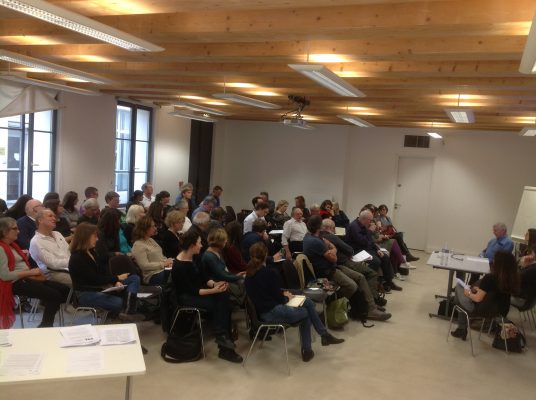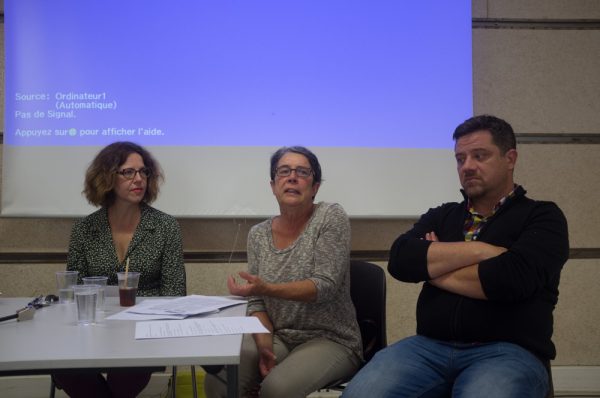
How do you survive and prosper as a freelance writer in France at a time when the media industry in undergoing such rapid change? Participants at our third freelance seminar (the first two took place in 1995 and 2004) on Oct. 15 heard some of the answers.
The five-hour session at the Maison de Métallos in the 11th arrondissement was the second freelance seminar organised jointly by the AAPA and the Paris branch of the National Union of Journalists of the UK.
More than 60 members of both groups, their guests and some students from the American University of Paris listened attentively to presentations from speakers on three panels, and learned a lot from the lively discussion that followed each one. The afternoon concluded with a networking hour over drinks and snacks.
AAPA members interested in reading fuller reports on the advice, options and solutions available to freelancers that were discussed in this and the other two panels should contact Barbara Casassus.
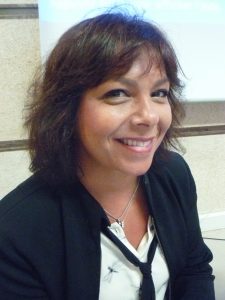
The first of the three panels, entitled “The Business of Freelancing in France,” aimed to give freelancers practical information on how to navigate the tangled French rules. Participants included Martine Rossard, of the pôle pigistes of the Syndicat National des Journalistes, Sarah Vedrenne, an accountant and tax advisor, and Benoît Lewyllie of SMart, a cooperative that handles administrative chores for independents in the arts.
Speakers shared with us their advice on the types of legal status that freelancers can adopt depending on their circumstances, and went over the advantages and disadvantages. One conclusion echoed by the panellists was that freelancers should ideally seek to be salaried, to enjoy proper social protection, although this is unlikely to go beyond the current status for freelancers working for French media. The status of auto- or micro-entrepreneur and the AGESSA or droits d’auteur regime have some advantages for writers living in France who freelance for non-French companies.
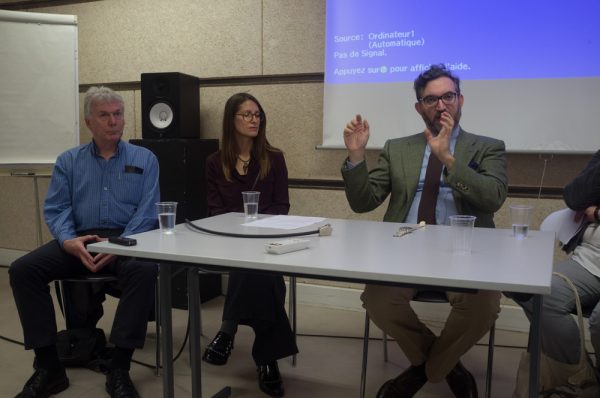
The second panel, entitled “The Changing Face of Journalism,” reviewed the state of the media industry, and how to find work at a time when many traditional media outlets have either shut down or shifted to online postings, bringing both job security and freelance fees down with them, and how to get paid fairly. Speakers included AAPA member Kim Willsher, Paris stringer for the Guardian, the Observer and the LA Times; Heather Stimmler-Hall, a blogger, journalist and author who now works for an NGO; John Toner, freelance organizer at the NUJ’s head office in London; former AAPA president Adrian Dearnell and founder of EuroBusiness Media, a content provider for corporate clients; and Natasha Edwards, NUJ Paris Branch freelance officer.

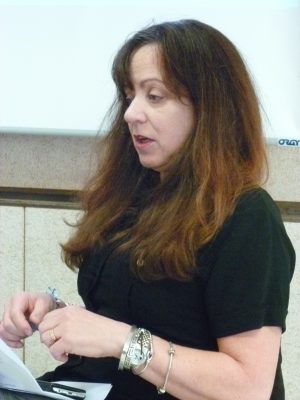
The main takeaway from this panel was that freelancers must broaden their skills beyond writing and become proficient in social media and multi-media. It is crucial these days for journalists to have a strong social media presence where commissioning editors can see their interests and work. And a regularly updated LinkedIn profile is also a big advantage. In addition, freelancers should seek new opportunities in areas where demand for content is growing, notably among corporates, and develop their network of commissioning contacts.

The third panel attempted to dispel some of the gloom from the previous discussion, with speakers sharing their positive experiences of being a freelance journalist despite the challenges they face. Taking part in this panel, which provoked a lively discussion, were AAPA members Shellie Karabell, Lisa Bryant and Tom Haley. Participants in the audience said they appreciated the personal anecdotes of these panelists. Here, too, there was a consensus that today’s journalists must be multi-skilled if they are to be successful, learning radio, video, film editing and multimedia, and should ideally specialize in a niche area to make themselves more attractive to commissioning editors.
